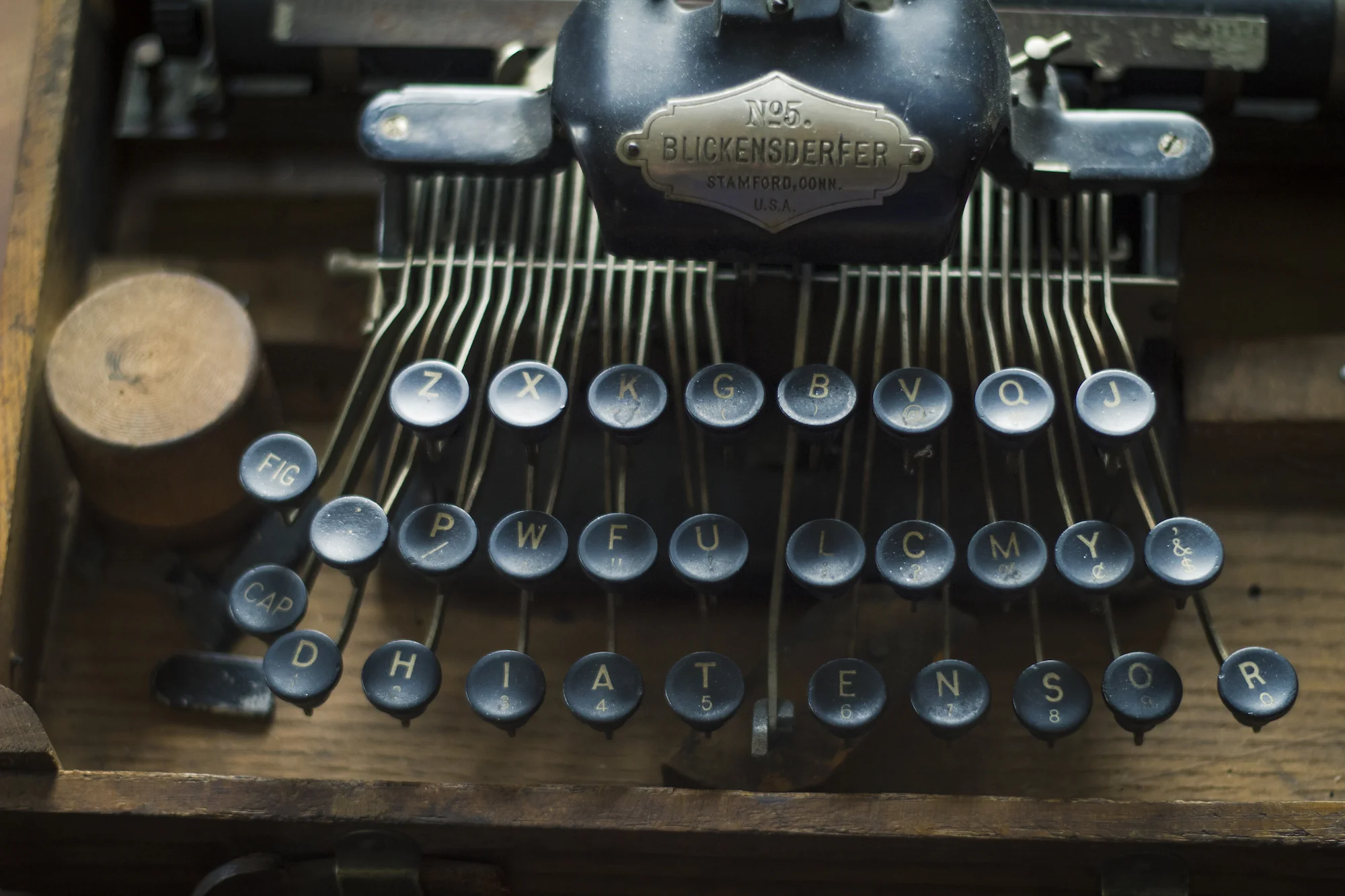I've been recovering from a short period of being deathly ill, and while the first 36 hours were pretty rough, the last 48 have been a lot of "well, it hurts to move, but if I stay right here I'm doing fine." So I've had a little bit of free time. I thought I'd share it with you on my new project.
The object was to create the greatest possible TV schedule of all-time. The rules were simple:
1. All TV programs had to be placed on their original network.So the point was not to select the best 100 shows, but to create the best TV schedule from TV schedules that had already existed, as if I went through a stack of TV Guides with scissors and tape.
2. All TV programs had to be put into a time slot they had once inhabited during their original run. Shows cannot be moved, nor the start times fudged, in any way.
I was also curious if there were spots that certain networks never tried to fill, or used to compete in and then gave up on. NBC was once famed for their consistently formidable Thursday night comedy block (it's okay-ish now) - if that's where their efforts have focused, where have they turned a blind eye? (Mondays at 10 PM, for one thing.)
When I created this, I tried to decide how it would best be experienced, should it become real.
Option A: I have my memory of all these shows be wiped, then start the TV season in September with the first season of all these shows. But that didn't seem right. A couple of these shows only got one season, and some of the others got a lot of seasons, but they didn't really get rolling until season three or four (this is often true of comedies. "Cheers," for instance).
So my next thought was Option B: I should pick out the best season of each show for this. But that didn't work either. I wasn't intimately acquainted with a lot of these shows - I set out to make the best schedule, not my own personal viewing wish list - so I wasn't qualified to guess which season would be best for each show. I planned on doing some research on this afterwards to figure that out, though, until I hit on:
Option C: I still get my memory of these shows erased, but first, reality-be-damned, they all start recording new episodes immediately, as if the show had never existed before. I'm not saying they reboot the franchises, I just say the shows simply reappear, with the original casts and crew and sets and time period and what-have-you, but now all in glorious high-definition. What's more, I pick out directions for all of them. Because, let's be honest, I could fix some of these shows. I know things. I'm savvy. Shows that were great and don't need to be touched get a free pass, shows that were great but lost something over time get a return to glory, and shows that were good but could have been better get some new blood.
One quick note - While the Big Three have had the privilege of broadcasting shows for well over 50 years, newer networks like Fox and the CW have had less time, and so less options for me to pick from. Therefore, I combined the CW with its two forebears (UPN and the WB) and called it one network, which seemed to be playing fair enough. I also made no bones about the quality of programming that has appeared on these networks since they began. If they've never tried to broadcast anything worthwhile after 10 PM, I'm not going to give them any credit.
Sunday
Alright, Sunday night has become a little bit of a throwaway in recent years, but that wasn't always the case, so there's some quality to be had here. However, changes need to be made. First, "Alias" must return to its early season glory, so let's get J.J. Abrams back as showrunner and bang things out. What's more, he also has to run CBS' "Mission: Impossible," since he did such a bang-up job on directing MI:3. Even better, Tom Cruise and Phillip Seymour Hoffman have to come with him.
Ed Sullivan, not-dead and in the prime of his career, will run his show in 2009, working with modern bands and comics who grew up idolizing him, but the Smothers Brothers will still operate in the sixties and seventies. Steve Martin will return to the writing staff and be named head writer. Likewise, Conan O'Brien will return as head writer of "The Simpsons," and Brad Bird will direct all the episodes.
"The West Wing" will start their run over, but Moira Kelly will never be hired - instead, Emily Procter will be introduced as Republican Ainsley Hayes in the third or fourth episode, and David Caruso will be executed in the street (not in the show, in real life) so that no one can start "CSI: Miami" and take her away from the show. Aaron Sorkin will naturally return to write all the episodes, and no one will ever give him cocaine.
"Psych" will return to network television, but be given a network budget to play with, and Rachel Leigh Cook's character will start having a recurring role. Jessica Biel will return to "7th Heaven," bringing Justin Timberlake with her. Her character will become overwhelming embarrassed when Timberlake forms a hip-hop/beatbox act with her father. Also, zombies are added.
Monday
ABC regains the rights to "Monday Night Football." They broadcast the best game, every week, which is selected the week before and not months in advance, so we see the best possible rivalry instead of Browns vs. Bengals in mid-November. Joe Buck is in no way involved.
"The Rifleman" takes on both John Ford and Quentin Tarantino as executive producers. Modern-day Ron Howard directs all of "The Andy Griffith Show." Old-school Ron Howard still stars.
We finally meet the goddamn mother.
"Northern Exposure" gets an added boost of quirk when Rob Morrow's "Numb3rs" co-star, David Krumholtz, joins the cast. Also, Judd Hirsch, just because. "House" combines his original team with his newer team, though Kal Penn still dies a messy and memorable death somewhere midseason (John Cho and Neil Patrick Harris both guest star as 'voices from his past'). There is at least one episode where Hugh Laurie, Robert Sean Leonard, and Lisa Edelstein do nothing but sit in a room together and say witty and acerbic things to each other.
On "24," the series starts over. For once, Kiefer Sutherland dies and gets resuscitated exactly zero times during the season. Elisha Cuthbert shows up and looks very hot for a little while, then dies a clear and irrevocable death so that she can never come back again. Dennis Haysbert returns as President, but it's revealed that he's also his character from "The Unit," and he and Sutherland go off and kick some terrorist tail together. The Chinese are never involved, and no one ever gets amnesia.
"Heroes" starts over from scratch, but someone writes them a truly awesome season finale. The show never comes back again. "Studio 60" starts over after the pilot and no one ever talks about politics ever again. Matthew Perry and Sarah Paulson agree just to disagree about whether God is real or not. Seth Meyers and Amy Poehler write all the sketches seen on the show.
The casts of "Everybody Hates Chris" and "Aliens In America" switch locations, just for fun.
Tuesday
First of all: no one jumps over a shark.
Next, "Sports Night" combines its cast and the sharp writing of Aaron Sorkin with oversight from ESPN executives, giving the show a more frantic, realistic pace. The show will tie in to real sports events, actual sports stars will guest from time to time, and Clark Gregg will join the cast full-time.
David Caruso will re-join the cast of NYPD Blue, then be executed in the street again.
Every episode of M*A*S*H will feature Alan Alda flying away in helicopters while Mike Farrell leaves him messages formed from piles of rocks.
Tuesdays at 9 will be "The Simon Baker Hour," with interspersed episodes of "The Guardian" and "The Mentalist." Eventually, those two shows will combine, and Simon Baker will attempt to win drug cases with the defense "I just know that he's not telling the truth" and a boyish wink at the judge.
On "American Idol," the top 12 will be Kelly Clarkson, Carrie Underwood, Chris Daughtry, Adam Lambert, Jordin Sparks, Kris Allen, Blake Lewis, Fantasia Barrino, Jennifer Hudson, Elliot Yamin, Allison Iraheta, and just for fun, Kellie Pickler or Sanjaya. Kara will not be judging, Simon will pay attention the whole season, and someone will spike Paula's drink every night.
No one will let Bailey start drinking, ever.
"News Radio" features the original cast, including Phil Hartman, but the show moves to Cincinnati to compete with "WKRP." It also subtracts some Dave Thomas kvetching. "Scrubs" features both Heather Graham and Tom Cavanaugh as permanent guest stars, and Brendan Fraser keeps popping back up as the dead brother only John C. McGinley can see. Zach Braff still goes off and makes Garden State, but this time he doesn't get a big head when he comes back.
"Remington Steele" just becomes James Bond, but weekly.
No Dean, no Logan, no Jess, no Christopher. These Gilmore Girls have terrible taste. Jared Padelecki is allowed to return only if it is revealed he was secretly his character from "Supernatural" this whole time, and he, Sean Gunn, and Liza Weil start a werewolf-hunting team, at which point it is revealed that Edward Herrman is a werewolf (I always suspected it).
"Veronica Mars" gets a complete free pass, on the condition that we get lots of Percy Daggs III.
Wednesday
"Pushing Daisies" gets complete freedom from network control, and Bryan Turner is allowed to run the show however he wants. However, Barry Sonnenfeld has to direct every episode. "The Johnny Cash Show" becomes essentially a weekly live Johnny and June Cash show, with guest spots from modern artists playing with Cash. Bob Dylan and Willie Nelson guest-host.
Chris Rock is added to the cast of "All In The Family." Paul Greengrass is named executive producer of "Hawaii Five-O." The results show of "American Idol" moves back to half an hour. There's a group number, a music video, Simon says something smarmy, and we find out the results. That's it.
"The OC" starts over, but this time Olivia Wilde is a full time cast member, and Mischa Barton isn't on the show at all. The show features Peter Gallagher and Kelly Rowan and almost no other adults. Adam Brody and Rachel Bilson get together and stay together, and hang out saying witty things to a surly Ben McKenzie.
"Law & Order" stays "Law & Order," and doesn't become "Law & Order: Useless Spinoff." Mariska Hargitay, Vincent D'Onofrio, and Jeff Goldblum all leave their spinoffs and join the cast.
I couldn't decide between "Felicity" or "Roswell," so I decided to combine the two. Now Felicity goes to college and discovers her identity in the very spot where aliens established contact with the Earth. Kind of a teen dramedy/sci-fi show, with big special effects. Fortunately, J.J. Abrams is named showrunner. Keri Russell, Greg Grunberg, and all the hot people from "Roswell" star. Especially Shiri Appleby.
Thursday
"The Odd Couple" stars Jack Lemmon and Walter Matthau. Done. Clive Anderson mercifully returns as host of "Whose Line Is It, Anyway?" "Lost" starts over, is told "you have 100 episodes to solve this thing. Go." Nikki and Paolo never show up, and no one ever tries to teach us the secret of Jack's tattoos. J.J. Abrams also has to return as showrunner.
Andy Garcia and Sean Connery reprise their movie roles in the TV version of "The Untouchables." Kevin Costner does not.
Someone shows Alfred Hitchcock, who was a practical joke player of disturbing intensity, a tape of one of those hidden camera scare shows and just says "you can do stuff like this on television now," then leaves the room. Hitchcock is given a gigantic budget and no oversight whatsoever.
Nobody on "Friends" ever has a baby, or tries to have a baby. They instead are forced to adopt "Seinfeld's" 'no hugging, no learning' policy. "The Office" spends three seasons trying to keep Pam and Jim apart. At the end of season three, they finally get together, and the show ends.
"Cheers" recasts Rhea Pearlman's part. "ER" has a cast of George Clooney, Noah Wyle, Maura Tierney, Anthony Edwards, Eriq La Salle, Julianna Marguilies, Linda Cardellini, Parminder Nagra, Shane West, Jorja Fox, and Busy Phillips. It goes off the air before it tries to do a smallpox scare for a second time.
"Smallville" picks up and moves to Metropolis, and Tom Welling begins his life as a young Superman, finding his way. Brian Singer is named executive producer, and Frank Langella and a young Marlon Brando join the cast.
Friday
Friday night's always been a bit of dumping ground, so this one got trickier.
On "Sabrina," we spend way less time with the aunts and way more time with the talking cat. The characters on "Boy Meets World" never go to college, though we do get that great subplot where Will Friedle goes to LA to become an actor. "Joan of Arcadia" is given a couple of seasons to discover how good a show it can be without everybody yelling at it about low ratings. It also stars the current, better-acting version of Amber Tamblyn as Joan, and Jeremy Renner as God.
I couldn't decide between "Dukes Of Hazzard" and "Moonlight," so in this new show, the Duke Brothers split their time between running from the law and vampire hunting. Likewise, I'm combining "The Love Boat," "Dallas," and "Falcon Crest." I can't even imagine what that would look like, but I would totally watch it.
Fox will run both "Firefly" and "Wonderfalls," and outside of broadcasting the programs will not interfere with either show in any way. It would also be up to the showrunners to decide how the show was marketed, not the Fox advertising department.
8 PM on Friday night for NBC was always a low-brain-cell affair, so I combined "Quantum Leap," "The A-Team," "Knight Rider," "Baywatch," and "Dark Angel." In it, the A-Team drives around in a giant talking Trans Am, fighting hordes of evil slow-motion lifeguards, masterminded by a leather jump-suited Jessica Alba. David Hasselhoff stars in it twice.
Nobody ever kills anybody on "Friday Night Lights." The amount of football played on the show is doubled.
"Star Trek" and "Star Trek: Enterprise" both return. J.J. Abrams is named showrunner for both.
Saturday
If you thought Friday night was bad, Saturday is even worse. These days, the networks literally don't program anything at all on Saturday nights. They just decide a week or two before what old movie or volleyball game they're gonna throw on. Sad.
"The Partridge Family" starts a competitive rivalry with the "Brady Bunch." Hijinks ensue, and everybody laughs and learns a valuable lesson. Then things get violent.
"Lawrence Welk's Dodge Dancing Party" returns to TV, because, oh my God, I can't believe a show was ever named that. David Lynch returns to "Twin Peaks," but Alfred Hitchcock is named executive producer. Gunsmoke is given the HBO "as violent as you wanna be, boys" treatment.
And of course, Fox does nothing but show "COPS" all night. God bless 'em.
Now, admit it - can you find even one thing about that TV season that you would not watch?































